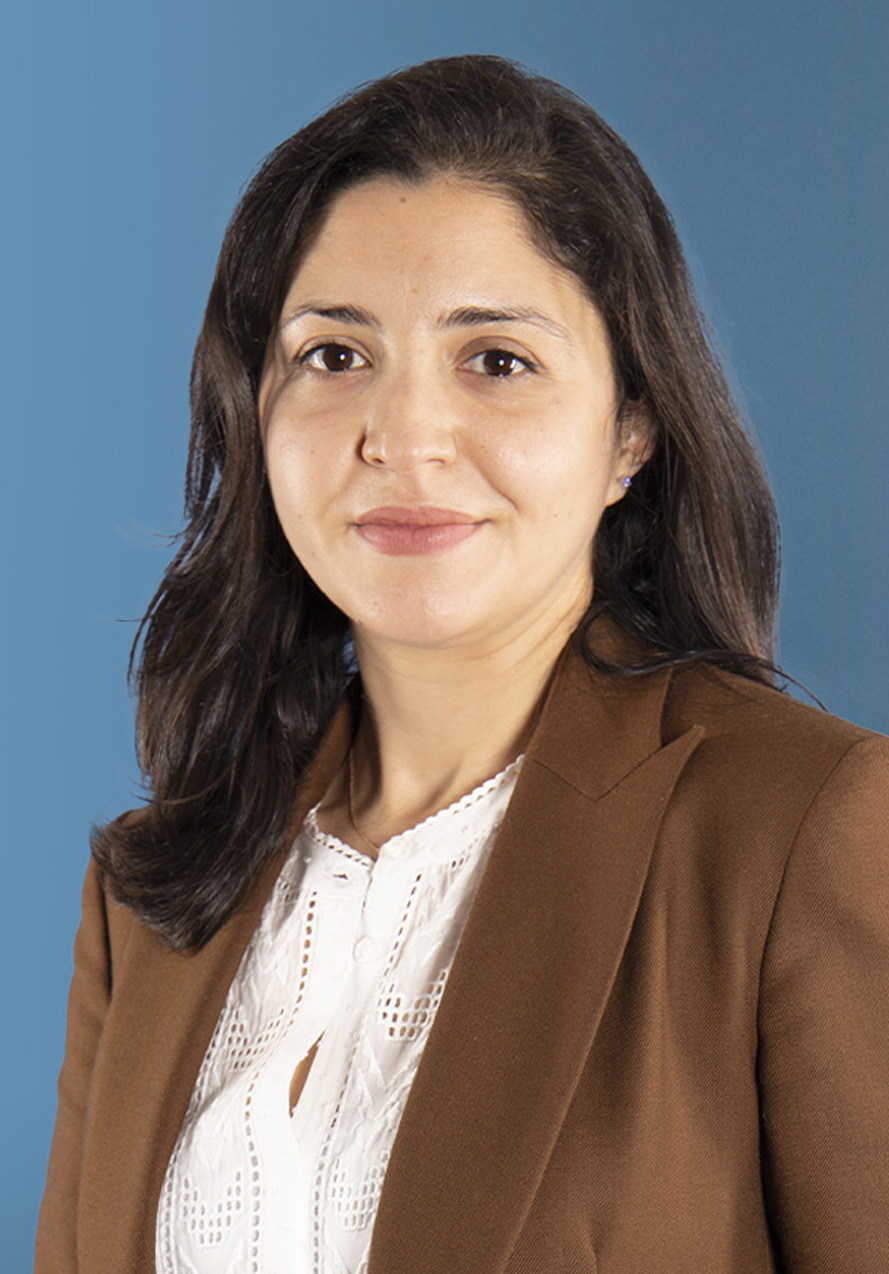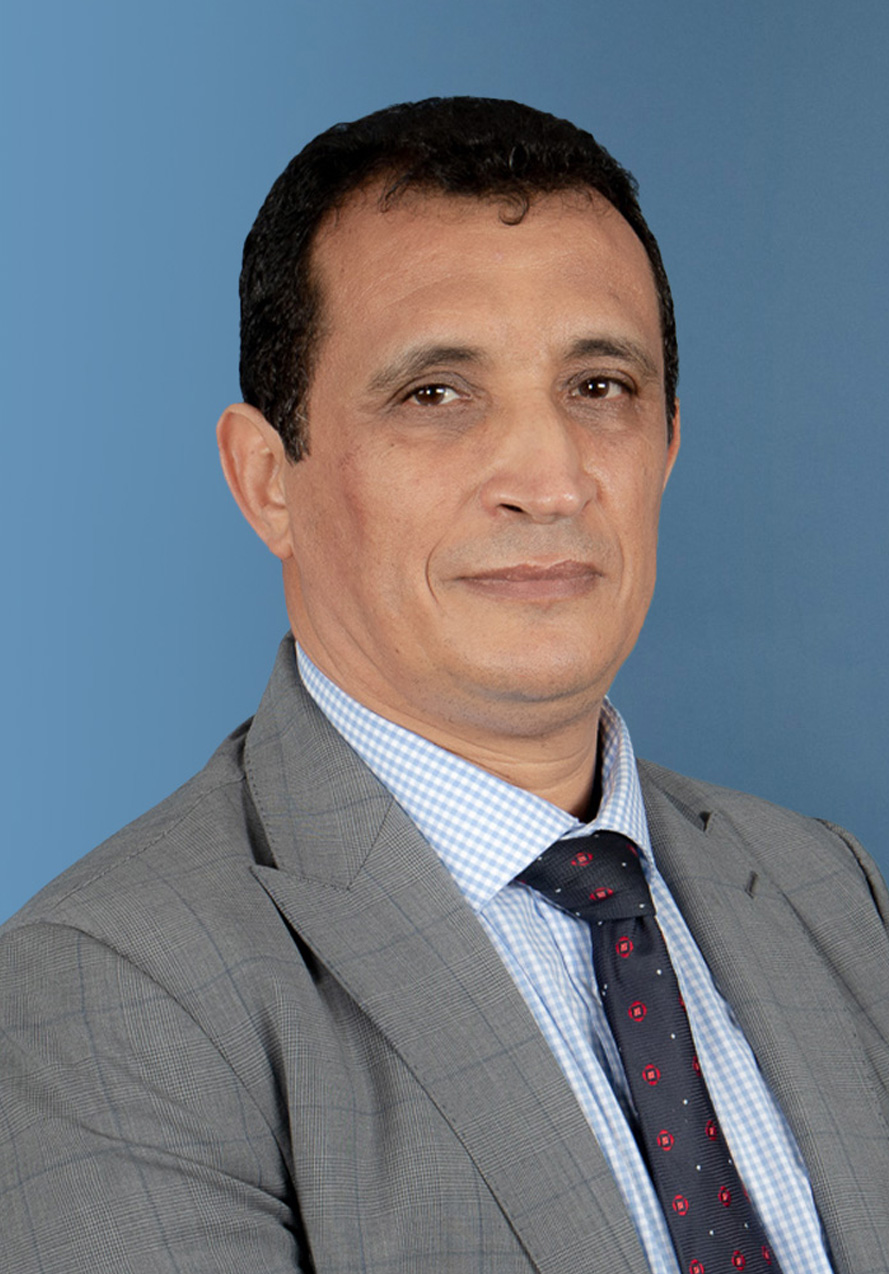Countering Violent Extremism: New Responses to New Challenges The Executive Board Committee of the Moroccan Observatory on Extremism & Violence (OMEV), in partnership with the Policy Center for the New South (PCNS), the “Délégation générale à l'Administration Pénitentiaire et à la reinsertion (DGAPR), and the Rabita Mohammadia of Ulema, will organise an online conference under the theme “Fighting Against Terrorism: New Challenges and New Needs”.
Speakers

Sara Hasnaa Mokaddem
Manager - Strategic Monitoring & Analysis Unit
Sara Mokaddem is the Manager of the Strategic Monitoring & Analysis Unit at the Policy Center for the New South. Prior to that, she has worked as a research analyst in charge of specific due-diligence reporting and risk analysis on private placements for a London-based investment fund focused on the mining and energy sectors. She has also worked with firms and individuals on attaining FCA authorization and regulation in the United Kingdom. Her previous professional experience includes a position as a visiting researcher at the Royal United Services Institute (RUSI) in 2011 and 2012 where she has produced research on the post-revolutionary situation in Tunisia and Libya and on the security of the Sahel. Having written modules on corporate forensics and on employee protectio ...

El Mostafa Rezrazi
Senior Fellow
Dr El Mostafa Rezrazi is a professor of Crisis Management, and Security Studies and a Senior Fellow at the Policy Center for the New South who focuses on Terrorism, Security and East Asia studies. His area of Expertise covers Afro-Asian Affairs, Strategic & Security Studies, Terrorism, Extremism and Deradicalization, mainly from the view of Criminal; Legal and Forensic Psychology.
He got his Ph.D. in Regional & International Affairs from the University of Tokyo in 1998, and later a Doctorate from the University of Mohammed V on the Psychological dynamisms of Suicide Bombers (2014). He is the executive director of the Moroccan Observatory on Extremism and Violence, Director of the African Center for Asian Studies, Rabat. Currently, he is Visiting Professor at the Univ ...

Karim El Aynaoui
Executive President
Karim El Aynaoui is Executive President of the Policy Center for the New South. He is also Executive Vice-President of Mohammed VI Polytechnic University and Dean of its Humanities, Economics and Social Sciences Cluster.
Karim El Aynaoui is an economist. From 2005 to 2012, he worked at the Central Bank of Morocco where he held the position of Director of Economics, Statistics, and International Relations. At the Central Bank of Morocco, he was in charge of the Research Department and equally a member of the Governor’s Cabinet. Previously, he worked for eight years at the World Bank as an Economist for its regional units of the Middle East and North Africa and Africa.
Karim El Aynaoui has published books and journal articles on macroeconomic issues in developing countr ...

Rachid El Houdaigui
Senior Fellow
Rachid El Houdaïgui is a Senior Fellow at the Policy Center for the New South and an Affiliate Professor at Mohammed VI Polytechnic University. He also serves as a professor of International Relations at Abdelmalek Essaadi University's Law Faculty in Tangier. His expertise encompasses international relations, geopolitics, defense and security, focusing on the Mediterranean region, North Africa, and the Arab world. He also serves as a professor at the Royal College of Advanced Military Studies in Kenitra and is a visiting professor at Cergy-Pontoise University (Paris), Cadiz University (Spain), and La Sagesse University (Beirut, Lebanon).
He is the founder of the Moroccan-Spanish review "Peace and International Security" and oversees the Observatory of Mediterranean Studies ...






